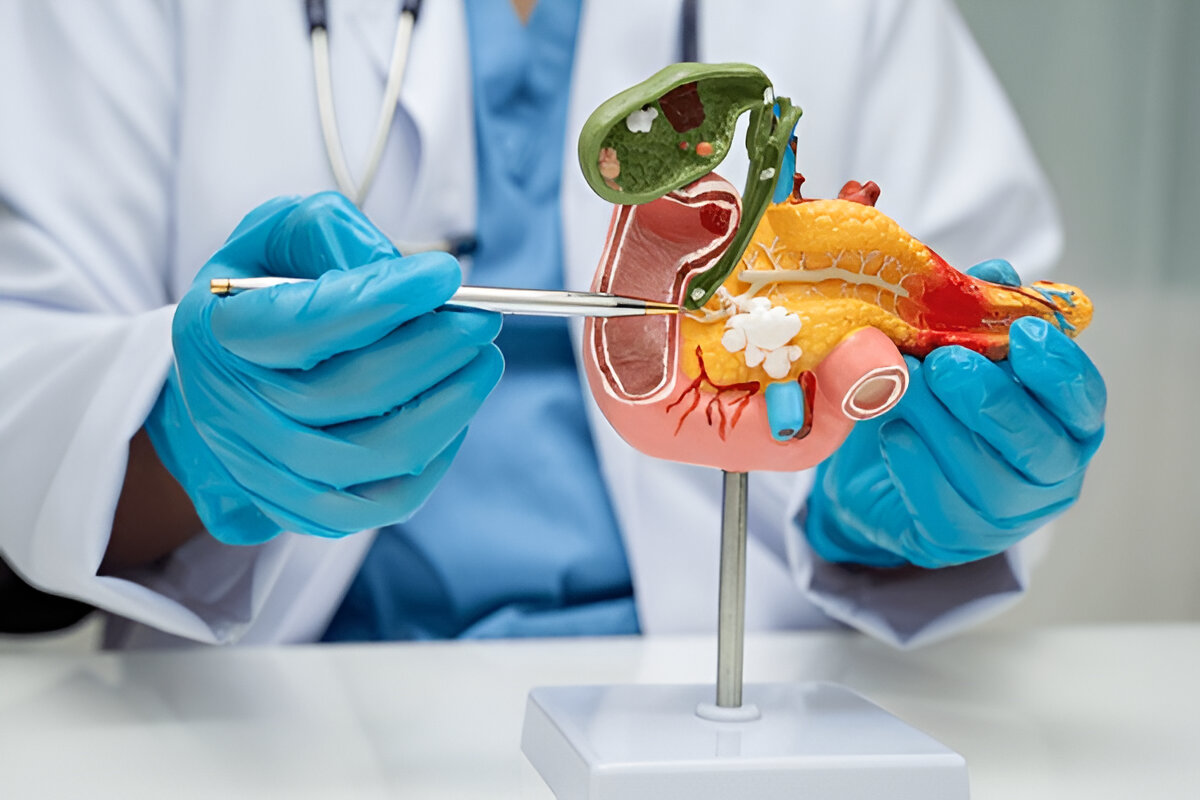Frequently Asked Questions
Liver cancer is a type of cancer that begins in the liver cells. The most common type is hepatocellular carcinoma (HCC), which starts in the main liver cells (hepatocytes).
Liver cancer can be caused by chronic hepatitis B or C infection, cirrhosis, excessive alcohol use, non-alcoholic fatty liver disease, or exposure to aflatoxins.
Common symptoms include weight loss, upper abdominal pain, loss of appetite, jaundice, nausea, fatigue, and a swollen abdomen.
Liver cancer is diagnosed using blood tests (like AFP), imaging (ultrasound, CT, MRI), and sometimes a liver biopsy for confirmation.
Treatment options include surgery (resection), liver transplant, ablation therapy, embolization, targeted therapy, immunotherapy, and radiation therapy.
Yes, surgical resection or liver transplant may be recommended for patients with early-stage liver cancer and good liver function.
Ablation therapy uses heat (radiofrequency or microwave) or chemicals to destroy liver cancer cells, often used for small tumors or patients who can't undergo surgery.
TACE is a procedure that delivers chemotherapy directly to the liver tumor through its blood supply, followed by blocking the artery to cut off the tumor’s blood flow.
Yes, a liver transplant may be an option for patients with early-stage liver cancer who meet certain criteria (e.g., Milan criteria).
Liver cancer may be curable in early stages with surgery or liver transplant. In advanced stages, treatment focuses on controlling the disease and extending life.
Targeted therapies like sorafenib and lenvatinib block cancer growth signals and are used for advanced liver cancer.
Immunotherapy drugs such as nivolumab help the immune system recognize and attack liver cancer cells, especially in advanced or metastatic stages.
Survival rates depend on the stage at diagnosis. Early-stage liver cancer has better outcomes, especially with surgery or transplant.
Yes, liver cancer can recur after treatment. Regular monitoring with imaging and blood tests is important to detect recurrence early.
Preventing hepatitis B and C, avoiding alcohol abuse, managing liver diseases, maintaining a healthy weight, and avoiding aflatoxin exposure can reduce the risk.

